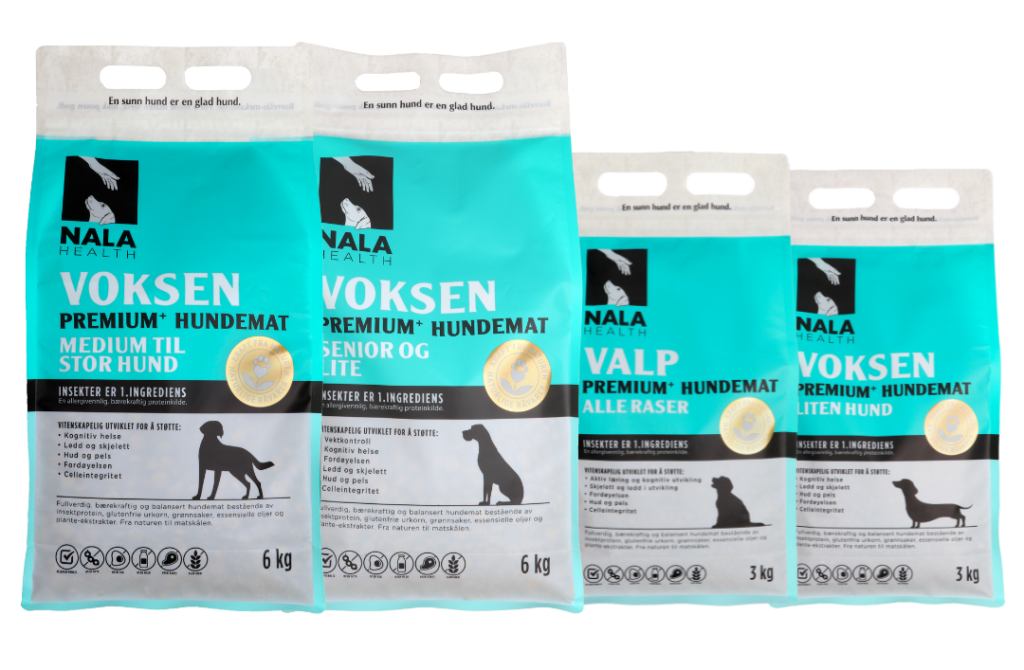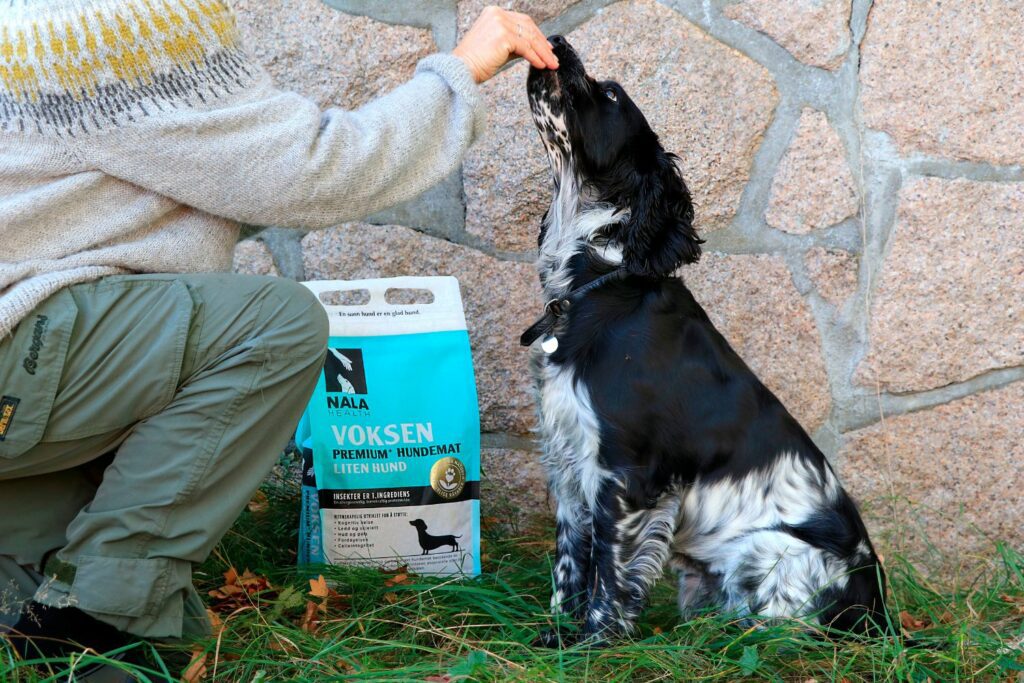Digestive Issues in Dogs
 Cecilie Hemsen Berg
Cecilie Hemsen Berg
The gut, often called the body’s “second brain,” does more than digest food. It manages various functions including nutrient absorption and immune defense. The gut microbiome, made up of bacteria, fungi, and viruses, is crucial for your dog’s health. Gut health affects our dogs’ mood, metabolism, and immune system. If serious illness is ruled out (such as parvovirus), the common culprit is an unhealthy gut. Always consult with a veterinarian if your dog is experiencing health issues. In this blog we will cover the signs of an unhealthy gut, how to bring the gut back to balance, home remedies and the impact of an unhealthy gut.
Signs of an Unhealthy Gut
An unhealthy gut can manifest in various ways in dogs, and it’s crucial to recognize these signs to take timely actions for their well-being. More obvious signs include:
- Persistent diarrhoea or constipation
- Vomiting
- Abnormal appetite
- Subdued energy levels
- Conditions like Irritable Bowel Disease and Colonitis
In addition to the more clear signs of stomach issues, some surprising symptoms can include:
- Frequent infections or slow healing.
- Mood swings, aggression, or lethargy.
- Allergies or hypersensitivities.
- Bad breath or inflamed gums.
- Pain upon touching the belly area.
- Chronic ear infections or paw chewing.

Promoting a Healthy Gut Microbiome
In today’s modern society the surge of health concerns, notably stemming from an imbalanced gut microbiome (or dysbiosis), is noticeable both in humans and our canine companions. This can be traced back to factors like poor diet and medications, particularly antibiotics and NSAIDs. This coupled with inactivity and stress further impacts gut health negatively. The silver lining is that you can improve your dog’s digestive system through mindful diet and lifestyle alterations.
1. Healthy Diet for Gut Wellbeing
With a variety of dog diets available, the aim is to meet all your dog’s nutritional requirements – ensuring a harmonious blend of complete proteins, healthy fatty acids, and beneficial carbohydrates, along with vitamins, minerals, and other essential nutrients. Ensure you are feeding your dog high-quality balanced dog food daily.

Feeding a diet that contains gut-friendly ingredients such as probiotics, beneficial fibre/prebiotics (eg. inulin, chicory root), butyrate, omega 3, coconut oil and quality protein will help promote digestion and overall gut health. Diets containing complex carbohydrates introduce fibre that feeds gut bacteria. As mentioned above, when bacteria digest fibre, they produce butyrate, a short-chain fatty acid. This nutrient is pivotal for digestive health, inflammation management, and potentially preventing leaky gut.
Lykke was so ill with diarrhoea, bloody stools and pain that I decided to change food to Nala Health without a transition period. After a day she was much better, with firmer stools and no more blood. After 3 days she was her old self.
Hilde
Nala Health recognises the importance of gut health and has therefore included several beneficial ingredients to promote healthy digestion, balanced microbiome and robust gut lining. We have included probiotics to balance the bacteria in the gut. Prebiotics and beneficial fibre help feed the good gut bacteria and sweep the intestines. Butyrate is a fatty acid that helps to maintain a healthy gut lining, which can help prevent conditions like leaky gut.

It can also be beneficial to introduce variety into your dog’s diet, for example by integrating some steamed vegetables, fruit, berries, steamed cod, saithe or mackerel. Homemade bone broth without salt and onions is another nutritious supplement we can give our dogs. Your dog’s faeces will give you a good indication of whether the food you’re feeding is doing your dog good.
2. Probiotics for a Balanced Microbiome
Numerous dogs encounter gastrointestinal issues, and implementing probiotics can positively influence the gut’s bacterial environment. Some dog foods incorporate probiotics to foster healthy intestinal flora, while others may find probiotics as separate dietary supplements beneficial. It’s noteworthy that while dog and human microbiomes host similar bacterial species, differences emerge at the strain level.
3. Exercise and Fresh Air
Fresh air and spending time outdoors in nature have many health benefits, also when it comes to the gut microbiome. Bacteria that are potentially good for your dog are everywhere in nature: in the dirt, on plants, and even in the air. You can boost your dog’s physical and mental health with sufficient exercise and playtime.
Be mindful that stress can impact the gut and minimizing stress for your dog (and yourself) becomes paramount. You can manage your dog’s stress by spending time in nature, with exercise and mental stimulation. Learn more here.


4. Bone Broth
Bone broth provides collagen through its easily digestible liquid gelatin. Collagen contains antioxidants, predominantly glutathione, which assist in liver detoxification and gut lining restoration. Integrating bone broth into your dog’s meals not only boosts nutrient absorption but also establishes an optimal environment for gut flora to thrive and aids in meeting their daily liquid intake needs.
How the Gut Affects Overall Health
1. Optimal Nutrient Absorbtion
The small intestine is an important player in nutrient absorption. It skillfully extracts nutrients from the food our dogs eat, ensuring that their bodies get all the essential vitamins, minerals, protein, fats and carbohydrates to support overall well-being.


The large intestine absorbs water and electrolytes, facilitating hydration and maintaining the balance of bodily fluids. Additionally, it plays an important role in absorbing vital vitamins, such as B and K. Vitamin K which is important for the body’s ability to heal wounds and for bone strength.
It’s fascinating to explore the gut microbiome. The microorganisms living in our dogs’ gut eat fibre from their food, creating several beneficial byproducts in the process. One such byproduct is butyrate, a short-chain fatty acid, which plays an essential role in maintaining a robust gut lining. Nala Health has added butyrate to our food, due to its health benefits for our dogs’ gut lining – the protective barrier in our dogs’ digestive system. This is particularly important in preventing leaky gut.
2. Intestinal Flora and the Immune System
Around 70% of the immune system is linked to the gut, and immune cells in the gut cooperate with the diverse range of bacteria, viruses and fungi living in the gastrointestinal tract protecting the body against disease. It is the intestinal bacteria that program the cells of the immune system. The colon also consists of lymphoid tissue, which protects the body against foreign antigens and pathogens.


3. The Tummy and Temperament
Have you heard about the gut-brain axis? The gut-brain axis is like a two-way communication street between the digestive system and the brain. Imagine the gut and the brain sending text messages to each other! The gut can tell the brain how it’s feeling (like if it’s upset or in pain), and likewise, the brain sends messages back, affecting how the gut works. This connection helps explain why sometimes when our dogs are nervous or stressed, their stomach might feel upset. It also shows how a healthy gut can positively influence our dogs’ mental well-being!


Did you know 90% of the serotonin produced in the body originates from the gut?! By promoting beneficial bacteria in the gut, it may be possible to improve brain health. A troubled gut can send signals to the brain, just as a troubled brain can send signals to the gut. Your dog’s digestive issues can be related to anxiety, stress or depression. New research describes the connections between the composition of the dog’s microbiome and behavioural characteristics such as aggression and sociability.
Nala Health has included several ingredients to promote gut health to ensure our dogs have a happy tummy. Introducing variety, like integrating leftovers (steamed vegetables, some fruits and berries, bone broth) can be advantageous. Monitoring your dog’s stools can offer insights into the efficacy of their diet.



Nature’s Pharmacy for Gut Health
- Herbs and supplements containing chamomile, valerian, St. John’s Worth, l-theanine or tryptophan can have a calming effect.
- Pheromones are natural hormones dogs secrete that can help to reduce anxiety. Discuss with your vet about pheromone calming collars.
- Fermented vegetables – buy organic or make your own. Start out slowly and work up to 1tsp per 7kg of body weight. Add to your dog’s food daily or feed as a snack when needed.
- Organic, unsweetened plain yoghurt and amazi with live culture can be useful if your dog tolerates dairy products. CBD oil for dogs is also an excellent option for reducing stress. Make sure it doesn’t contain THC.
By tuning into the gut’s subtle signals and fostering a lifestyle that promotes optimal health, we can help our dogs live their best lives during every life stage. During times of weakened health, there are home remedies that can bring balance back to the gut. Lastly, it is always important to consult with your veterinarian to ensure your dog received the correct treatment.

